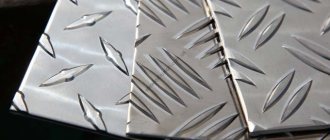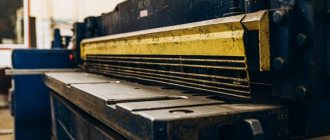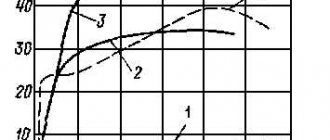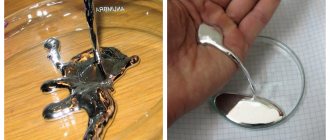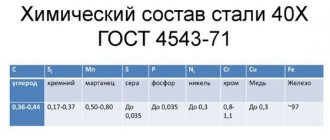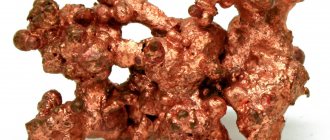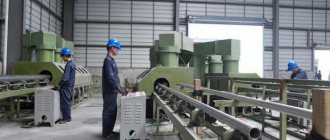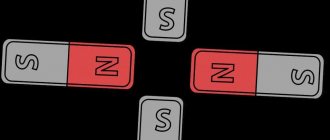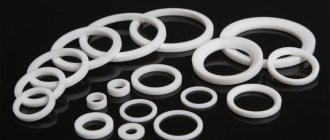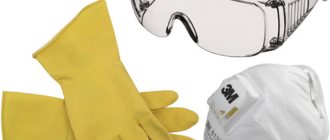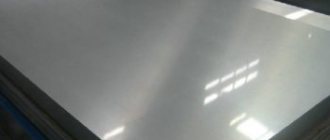Application for product/service
Aluminum sheet is a semi-finished product that is made from aluminum or its alloys by hot deformation and further cold rolling.
For the production of sheets, modern manufacturers use different grades of technical aluminum, in particular: A0, AD0, A5, A6, duralumin alloys of grades D1, D12, D16, wrought alloys AD31, aluminum-manganese and aluminum-magnesium - AMts and AMg, respectively. To increase corrosion resistance, sheets of most alloys are coated with a film of high-purity aluminum using cladding (layering). Its thickness is up to 5 percent of the total thickness of the workpiece.
Aluminum sheet GOST 21631-76 OST 1.92000-90
One of the popular semi-finished products on the modern metal market is aluminum sheet; GOST 21631-76 regulates its production. According to the technical documentation, pure aluminum or its alloys are used for manufacturing: AD1, AMg3, AMts, AD, D16, D16A D16T D18 D1 AD1M AD1N AMG5 AMG6M AMtsN AMTSM and others.
This type of metal product is produced by cold or hot rolling. The thickness of aluminum sheets made using the first method cannot exceed 6 mm.
Aluminum sheet can be processed in the following ways:
- Annealing. In this case, the finished product is exposed to high temperature, kept for some time, and then gradually cooled.
- Hardening. The metal is processed by pressure.
- Hardening. The product is heated to a certain temperature, after which it is quickly cooled.
- Natural aging. The material is kept for some time at room temperature.
- Artificial aging. It is carried out at elevated temperatures.
According to their shape, sheets are classified into standard, perforated, corrugated and corrugated. From the tables of regulatory documents of the state standard, you can find out the permissible thickness, width, length, and weight of the aluminum sheet. But by agreement with the consumer, it is possible to produce sheet metal with parameters that do not comply with GOST.
Types of aluminum sheet by production method
- Unclad sheet - cannot be clad, is made from primary or technical aluminum, has high corrosion resistance.
- With a normal level of plating - made from high-strength hard alloys that require an anti-corrosion protective coating. Sheets 1.9 mm thick are clad with a layer of aluminum (its thickness is 2% of the thickness of the sheet itself). If the sheet thickness is less than 1.9 mm, the aluminum layer is 4% of the sheet thickness.
- With technological cladding - the cladding layer is 1.5% of the sheet thickness. It improves the appearance of the sheet and greatly facilitates the sheet rolling process. But it will not be able to protect the sheet from corrosion, therefore, to use the material in aggressive environments, unclad sheets or with a normal level of cladding should be used.
Aluminum sheet GOST: scope of application
Thanks to these characteristics, aluminum sheet is widely used in almost all spheres of human activity. It is most popular among consumers from the construction industry.
This type of sheet metal is used for interior decoration, the manufacture of ventilation grilles, structures of various shapes, and also as roofing material. In industrial production, this product is used to produce fuel tanks, chemical containers, fasteners, casings, hydraulic equipment, and pipes.
Other applications:
- Food industry;
- Automotive and aviation industry;
- National economy;
- Chemical and oil and gas industry;
- Shipbuilding and carriage building;
- Furniture manufacturing.
- Sheet metal products are also used in everyday life.
Features of material processing
- Without heat treatment - the thickness of such sheets ranges from 5 to 10.5 mm, so they are especially durable.
- Annealed sheets - sheets are heated to a certain temperature, held and cooled, which increases the strength of the material.
- Cold-worked - sheets are subjected to cold-pressure cold processing. This increases the hardness of the material. The tensile strength of such a sheet is two times higher than that of an annealed sheet. They are designated by the letter N.
- Refined - sheets are cleaned of mechanically captured impurities by electrolysis. They are designated by the letter R.
- Hardened - sheets are processed thermally. Unlike annealing, this technology features rapid cooling.
- Naturally aged - sheets that have been kept at room temperature, without additional heating.
You can buy aluminum sheets profitably in Moscow from our company. Here you will find a wide variety of products in terms of composition, processing and production methods. You can buy aluminum sheets by placing an order by phone or on the website.
Buy aluminum sheet
In our company you can purchase certified aluminum sheets at retail and wholesale.
We specialize in the storage and sale of metal products, material processing, as well as the production of meshes and structures of any complexity.
Our organization offers high-quality rolled metal products, since before entering our warehouses, the products are visually inspected for defects and are also subjected to a series of tests to ensure compliance with the requirements and norms of state standards.
You can always order aluminum sheets from us; the price of the products is calculated only after agreeing on all the terms of cooperation, but in any case, it compares favorably with the cost of our competitors’ products. In order to buy aluminum sheets and other types of rolled metal from our company, just call the contact phone numbers and leave a request.
Application of aluminum sheets amg5, amg2 m, amg3
Can you tell which aluminum sheet is used in each picture? Having trouble? Let's try together to understand the main aluminum alloys and their applications.
First, let's look at the condition of aluminum sheets.
GOST 21631-76 defines 7 possible states of the sheet, we will focus only on the most common ones: 1) annealed - M;
Soft aluminum sheet, easy to deform.
2) semi-hardened - H2;
The aluminum sheet is more rigid than in the “M” state and is also easy to deform (withstands bending up to 90 degrees). It holds its shape well, its rigid state prevents the formation of dents, therefore it is most often used in thermal insulation of pipes.
3) cold-worked - N;
Cold hardening is a method of hardening metal using cold deformation (additional rolling on a machine).
4) hardened and naturally aged - T;
Solid aluminum sheets. More difficult to process (it breaks when bent at 90 degrees). Used in parts and assemblies with high loads.
Alloys 1105, VD1.
Technical aluminum sheet is used as an insulating and finishing material. The low weight of the sheet and its flexibility ensure low costs and convenience when carrying out insulation work. The most commonly used alloys are 1105AN2, VD1AN2. AD1N2 alloy is also used for thermal insulation.
Alloys of the aluminum-magnesium group: AMG2, AMG3, AMG5, AMG6.
Acid-resistant aluminum sheet is made from aluminum alloyed with magnesium and manganese. The AMg2M, AMg3M, AMg5M, AMg6M grades have high anti-corrosion characteristics and are perfectly weldable. Therefore, they are widely used in the production of welded containers, fuel tanks and other parts in aircraft construction. Excellent for both industrial shipbuilding and private production of boats, boats, catamarans.
Alloys AD1, A5.
Food grade aluminum sheet is made from grades of primary aluminum - cold-worked (A5N, AD1N), semi-hard-worked (A5N2, AD1N2), annealed (A5M, AD1M).
AMC alloy.
Sheets made of aluminum grade AMts have increased ductility and are easily deformed. They are used in a semi-hardened and cold-worked state in the automotive industry for the manufacture of radiators, frames, and rivets. Can also be used in food production, but without direct contact with food.
Alloys D16, D19, V95.
D16AM is annealed duralumin with normal cladding. D16AM is a high-strength type of duralumin and is resistant to external influences. D16AM does not become brittle in the cold, therefore it is used in conditions under which the use of other types of steel becomes impossible. D16AM alloy sheets are most widely used in the production of various parts manufactured by stamping.
D16AT - made from an aluminum alloy with alloying elements, the main of which is copper. The alloy is used for the manufacture of bent profiles. The advantage of D16AT is that a part made from such an alloy is immediately hard, without additional heat treatment.
D16T – duralumin, made from an alloy of aluminum with copper and manganese. D16T has good ductility and increased fatigue characteristics. The range of applications of the alloy is wide. D16T is used in construction, aircraft manufacturing, shipbuilding, furniture production and other industries.
B95 is a durable aircraft alloy. It is used for wing top skins (plates, sheets), stringers (bent sheet and pressed), beams, struts and other elements of the fuselage and wing of modern aircraft (TU-204, Il-96, Be-200) and other highly loaded structures operating in mainly for compression.
Alloys D16, V95 cannot be welded by argon-arc and gas welding. Therefore, rivet joints are most often used for joining semi-finished products (thick sheets, profiles and panels).
You can order sheets amg5, amg2 m, amg3 from our company.
From construction to food industry
Each type of aluminum sheet has special properties, which must be taken into account when choosing rolled metal for use for certain purposes. Thus, the cold-worked material acquires additional hardness and resistance to tearing. Annealed rolled products have improved processing ability. Sheets without heat treatment have high strength due to their increased thickness. Hardened products have increased wear resistance.
Where is sheet aluminum used?
- food and chemical industry;
- mechanical engineering;
- construction work (for example, cladding of buildings);
- heat supply and water supply systems;
- arrangement of floorings, etc.
Smooth sheets are often used for the manufacture of decorative parts; products with a mirror surface are used in the production of household appliances, etc. Universal rolled products (general purpose) are used for the production of various designs. The scope of application of sheet aluminum is very wide, which is explained by the special properties of the product.
Types and advantages of sheet aluminum
Sheets are a popular type of rolled metal, differing in processing methods and other characteristics. The general advantages of sheet material include:
- high resistance to corrosion;
- long service life (more than 30 years);
- possibility of different methods of mechanical processing;
- light weight (this simplifies the installation of materials and structures);
- high plasticity and attractive appearance;
- resistance to temperature influences.
Excellent characteristics allow sheet aluminum to successfully compete with rolled stainless steel products, and surpass these materials in many respects. The price for different types of rentals can be found on the group’s website by sending a request.
Types of aluminum sheets
Different processing methods give the material additional characteristics and change its properties. On sale are rolled products without treatment, cold-worked and semi-hardened, annealed, hardened, artificially aged, etc.
Read more about what properties aluminum sheets have on the page https://www.adamantsteel.ru/product/tsvetnoy-metalloprokat/alyuminievyy-prokat/list-alyuminievyy/, here you can also familiarize yourself with the types of rolled metal.
Order aluminum sheets from our company
The supplier company has been operating for several years and during this time can guarantee a large number of advantages for those wishing to purchase high-quality aluminum sheets wholesale and retail:
- prompt delivery in a short time;
- prices directly from the manufacturer;
- quality assurance;
- a wide range of rolled metal of different grades: profiled sheets, cold and hot rolled sheets.
Specialists are always ready to help with the choice and advise on issues of interest to the customer, clarify the purchase volumes, as well as delivery times. Catalog section - Aluminum sheets
